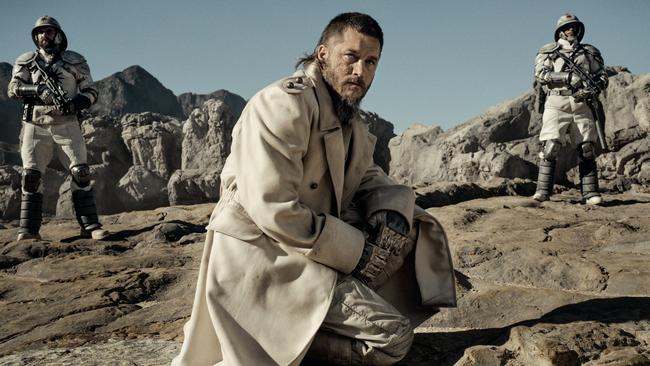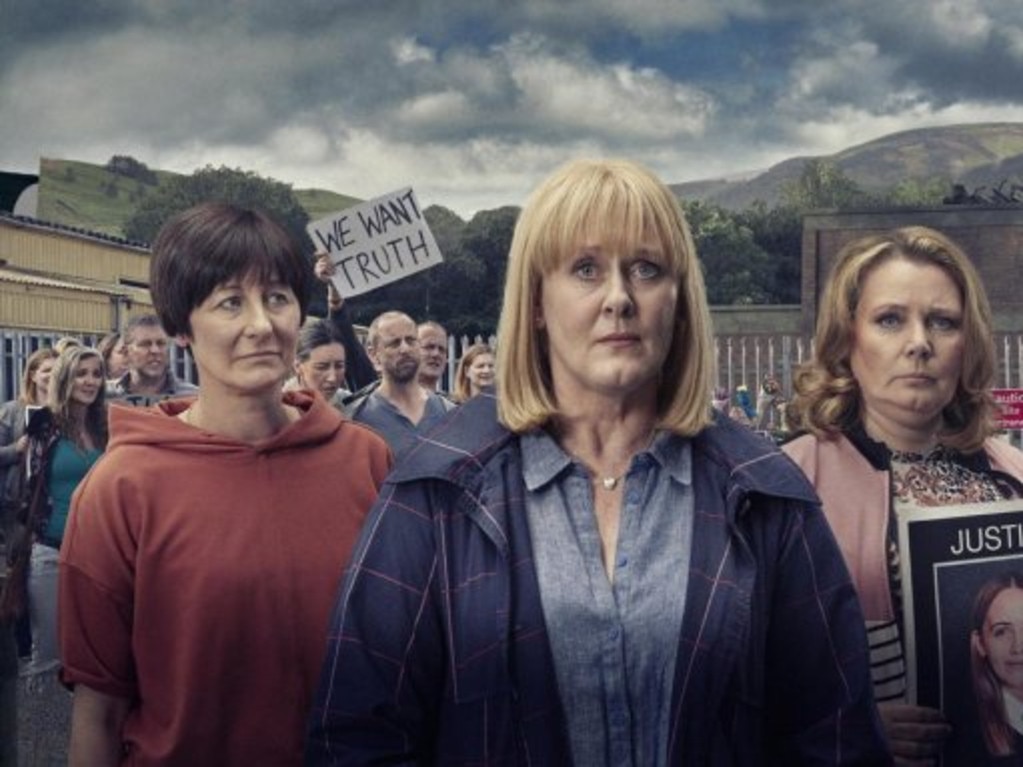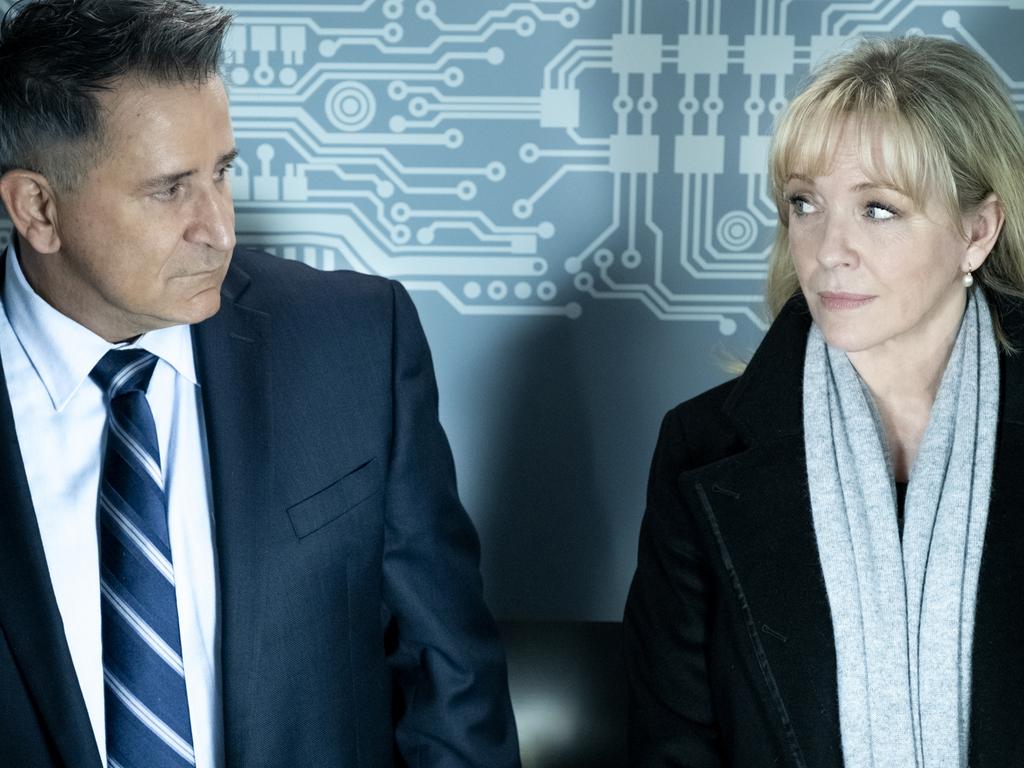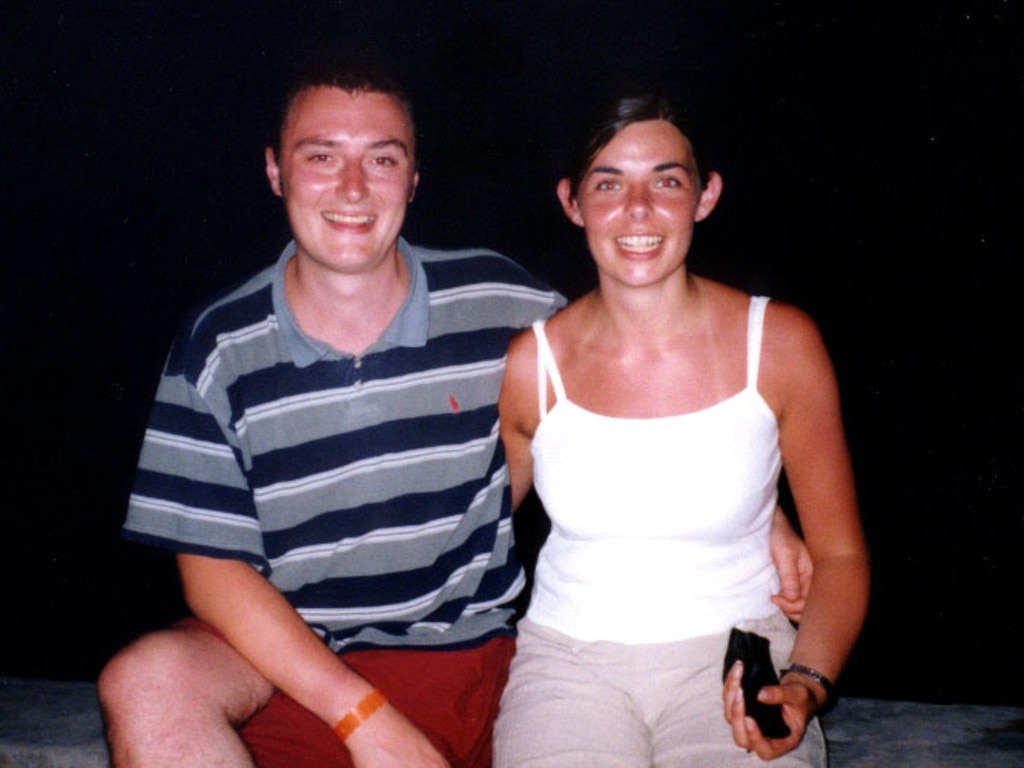Ridley Scott tackles his first foray into TV with Raised by Wolves
Raised by Wolves is finally here and gives a new meaning to the term ‘cliffhanger’ at the end of the first episode.

Raised by Wolves is the much-awaited new TV series from Ridley Scott, which he produced and initially directed the first two episodes of, setting the aesthetic for the ten-part series.
The sci-fi drama premieres on September 3 and will also be available on Foxtel’s On Demand catch-up streamer. Best known as the visionary creator behind classic films such as Alien and Blade Runner, Scott’s films – so often grandiose, high-concept and philosophic – have always been intensely cinematic, taking audiences to unexpected, and maybe even unnamable, areas of experience. Hollywood director and Oscar winner Sydney Pollack called him one of cinema’s great stylists, along with Adrian Lyne and Alan Parker: “Every shot has a great idea in it”.
The new show, produced by Scott Free Productions, was created by little-known American screenwriter Aaron Guzikowski, who wrote the well-regarded, but commercially unsuccessful, 2013 Denis Villeneuve thriller Prisoners – his personal story and the not uncommon Hollywood narrative of a writer determined to kick down doors but largely failing. In recent times Guzikowski has been involved with the Jason Momoa TV series The Red Road and the Rami Malek-starring remake of Papillon. Sticking to his guns, his reward was the venerated Scott choosing his script for his US TV debut, with HBO picking up the obviously hefty tab.
The production team includes two of Scott’s frequent collaborators in production designer Chris Seagers and Oscar-winning costume designer Janty Yates, both who were part of Scott’s Alien and Covenant productions. Yates also designed the wardrobe for Scott’s The Martian.
To film the important first episode and set the tone for the series, Scott brought in Polish cinematographer Dariusz Wolski, with whom he had worked on Prometheus, The Counselor and The Martian.
While the series has been heavily promoted as if Scott is a stranger to TV, Scott Free has received more than 100 Emmy nominations for its TV projects during the 25 years of its existence, with 22 wins, and 28 Golden Globe nominations. But this project is new territory for Ridley Scott.
“I’m always searching for new frontiers in the sci-fi genre and have found a true original in Raised by Wolves – a wholly distinct and imaginative world, full of characters struggling with existential questions: What makes us human? What constitutes a family?” Scott said of the series in an early statement. “And what if we could start over again and erase the mess we’ve made of our planet? Would we survive? Would we do better?”
The premise for the series, shot in studios in Cape Town and in a remote desert location north of the city, is relatively refreshingly simple, if a little enigmatic. “Mother was programmed to protect everyone after earth had been destroyed,” the tagline says. “When the big bad wolf shows up, she is the one we must trust.”
Mother and Father, played with wonderful authority by Danish actor Amanda Collin (The Exception) and Abubakar Salim (Black Mirror) are androids, and a beguiling first sequence sees them land their small space craft on a planet called Kepler-22b. It’s mountainous, desolate and features huge Yakka-like trees arranged in circles and the forsaken bones and rib cages of gigantic lizards that once roamed its deserts.
600 light years from earth, it’s the closest earthlings can escape to after their planet became uninhabitable due to war. (In a nice touch, Keplar-22b, is the same name as an actual exoplanet 600 light-years from Earth that NASA identified as a promising spot to search for life.)
Carrying a cargo of human embryos to start a new colony, they are, it seems, ten years in advance of a much larger ship, called Heaven, carrying the last human survivors after a war between atheists and believers has destroyed Earth. The military on board, as is later revealed, wear uniforms reminiscent of the fierce medieval Christian Templar soldiers of the Crusades, featuring a distinctive red cross. (It’s not clear just how the smaller ship of non-believers was allowed to escape the fundamentalists or who is behind the programming of the androids. Early on, nagging confusion about storylines is a little irritating.)
The small advance ship crash-lands but Mother and Father survive and set up camp in an “activated” dome, a nice high-tech piece, and begin to breed human babies. The narration of a young boy’s voice tells us how, as time passes, they never complain, get tired or lose their tempers – though Father is fond of bad jokes – and never take time for themselves. Their only aim is the happiness of their children. Then the narrator brings an ominous note to proceedings: “All the bad stuff that happens wasn’t their fault – the future’s invisible, even to androids.”
Eventually it’s revealed the voice is that of 12-year-old Campion – played sensitively and with authority by young Australian actor Winta McGrath – the scrappy but sensitive boy, full of questions about the nature of faith and belief, successfully raised by Mother and Father, after his siblings struggle in the harsh conditions.
The voiceover narration is gently introduced, its tone a knowing sadness, providing non-judgmental observations that add another layer to what we’re seeing but also setting up a set of expectations as to what might happen to these characters later.
Mother and Father teach their children to survive but it appears the androids are programmed with atheist DNA, and Mother struggles to prevent them from accepting belief in the unreal. The new world, she tells them, is to be built on humanity’s belief in itself, not an imagined deity. “We will never advance unless you resist the urge to seek solace in fantasy – you are atheists, peaceful, technocratic; it is the only path to progress.”
Somewhat strangely, she begins to exhibit human traits herself as she positions her children as the nucleus of a new, peaceful humanity; it’s obvious there are secrets hidden deep within her own programming. And it’s here that what has so far been a slow beginning for a new series – the growing-up story seems interminable – that the bombshell revelations and jaw-dropping plot revelations one might have expected start to take flight.
As you might expect of Scott, he cleverly establishes the world of this drama and its characters while introducing the series’ long-running themes and visual language. But it does take some time, and might lose some viewers, though early on there is a brilliant montage sequence that dramatises the war that destroyed civilisation with all the cinematic whizzbangery any sci-fi aficionado could hope for. The series is a feast for the eyes, but unlike many of Scott’s movies it’s pared back, the usual fretwork of lush visual detail cut back so that you can really concentrate on the story, which may just prove to be its fatal flaw.
It’s a style that you would not necessarily expect from Scott but as Dariusz Wolski has said: there is an odd aspect in collaborating with the director. “Because so many of us have been so influenced by his movies and have mimicked his work for our entire careers, we have to stop ourselves from ripping him off while we’re working with him,” he told American Cinematographer. “Ridley is totally aware of the danger of repeating himself, too. Sometimes we’ll set something up and throw some smoke into the scene, and he’ll look at it and say, ‘No, I’ve done this before,’ and we’ll take a different approach.”
And here, eschewing his usual high-concept visuals, it’s as if he wants to document the character’s survival as if filming a lost tribe in the Amazon. Director of photography Ross Emory, who worked with Wolski on later episodes, calls Scott’s approach ethnological, “almost like shooting a doc about a tribe never before encountered by western civilisation in Brazil or Papua New Guinea”.
The camerawork is slow and majestic, played out in wide shots until the androids begin to exhibit some human traits and the camera moves in closer, and initially at least Scott engineers his shots in a pace that’s more stately than his usual kinetic style.
But there’s also escalating horror towards the end of the first episode, and the kind of mechanical spectacle at which Scott is so adept – unexpected and just a little implausible given the drama’s earlier conventions – that sees Mother in another light. They are extraordinary action sequences but when the episode ends it’s hard to believe if we could ever see their like again, given the way the plot turns. It gives new meaning to the term cliffhanger.
Raised By Wolves premieres on Fox Showcase on Thursday September 3 at 8.30pm. Also available on Foxtel On Demand.





To join the conversation, please log in. Don't have an account? Register
Join the conversation, you are commenting as Logout